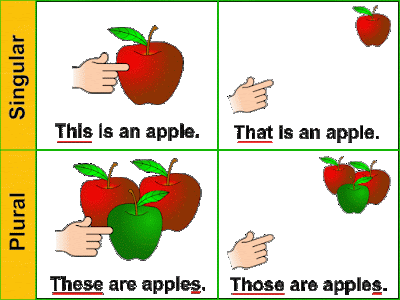viernes, 17 de junio de 2016
Quantifiers, from learnenglish.britishcouncil.org
We use quantifiers when we want to give someone information about the number of something: how much or how many.
Sometimes we use a quantifier in the place of a determiner:
Most children start school at the age of five.
We ate some bread and butter.
We saw lots of birds.
We ate some bread and butter.
We saw lots of birds.
We use these quantifiers with both count and uncount nouns:
| all | any | enough | less | a lot of | lots of |
| more | most | no | none of | some |
and some more colloquial forms:
| plenty of | heaps of | a load of | loads of | tons of | etc. |
Some quantifiers can be used only with count nouns:
| both | each | either | (a) few | fewer | neither | several |
and some more colloquial forms:
| a couple of | hundreds of | thousands of | etc. |
Some quantifiers can be used only with uncount nouns:
| a little | (not) much | a bit of |
And, particularly with abstract nouns such as time, money, trouble, etc:, we often use:
| a great deal of | a good deal of |
Members of groups
You can put a noun after a quantifier when you are talking about members of a group in general…
Few snakes are dangerous.
Both brothers work with their father.
I never have enough money.
Both brothers work with their father.
I never have enough money.
…but if you are talking about a specific group of people or things, use of the … as well
Few of the snakes are dangerous.
All of the children live at home.
He has spent all of his money.
All of the children live at home.
He has spent all of his money.
Note that, if we are talking about two people or things we use the quantifiers both, either andneither:
| One supermarket | Two supermarkets* | More than two supermarkets |
|---|---|---|
The supermarket was closed
The supermarket wasn't open
I don’t think the supermarket was open.
|
Both the supermarkets were closed.
Neither of the supermarkets was open.
I don’t think either of the supermarkets was open.
|
All the supermarkets were closed
None of the supermarkets were open
I don't think any of the supermarkets were open
|
*Nouns with either and neither have a singular verb.
Singular quantifiers:
We use every or each with a singular noun to mean all:
| There was a party in every street. | = | There were parties in all the streets. |
| Every shop was decorated with flowers. | = | All the shops were decorated with flowers. |
| Each child was given a prize. | = | All the children were given a prize. |
| There was a prize in each competition. | = | There were prizes in all the competitions. |
We often use every to talk about times like days, weeks and years:
When we were children we had holidays at our grandmother’s every year.
When we stayed at my grandmother’s house we went to the beach every day.
We visit our daughter every Christmas.
When we stayed at my grandmother’s house we went to the beach every day.
We visit our daughter every Christmas.
BUT: We do not use a determiner with every and each. We do not say:
lunes, 6 de junio de 2016
These are some irregular verbs starting with the letter "a" and "b"
INFINITIVO PASADO PARTICIPIO SIGNIFICADO
arise arose arisen Elevarse, surgir, originarse.
awake awoke awoken Despertar, mover, excitar.
bear bore born Soportar, sostener, tolerar.
beat beat beaten Batir,revolver, golpear, vencer.
become became become Hacerse,tornarse,convertirse en.
begin began begun Empezar, iniciar.
bend bent bent Doblar, inclinar, torcer.
bet bet bet Apostar
bind bound bound Atar, unir, enlazar.
bite bit bitten Morder.
blow blew blown Soplar
break broke broken Quebrar, partir, romper.
bring brought brought Traer, llevar, conducir.
build built built Construir, edificar.
burn burnt burnt Quemar, incendiar.
burst burst burst Romper, reventar.
buy bought bought Comprar
viernes, 3 de junio de 2016
Suscribirse a:
Comentarios (Atom)

